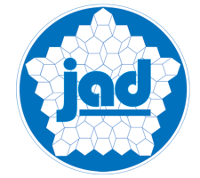The CRC And Deaf Children
Perhaps the greatest challenge facing this Association is that of finding creative solutions for equalising opportunities for Deaf children to enjoy their rights. Very often this involves adaptation of mainstream models to meet the special needs of Deaf children. Lets examine for example the child’s right to Basic Education. Given the impact of deafness on Language development, early identification and special educational intervention is essential if Deaf children are to be prepared for an active adult life in a free society. The JAD has therefore sought to put in place services for hearing screening of very young children and a referral system for the most appropriate educational placement. In its Special Education programmes the JAD strives to mirror national standards while addressing the special needs of Deaf children through specialised teaching techniques, communication skills and a plus curriculum for components such as Speech, Auditory Training and Language development.
The CRC recognises “the right and responsibility of parents and the extended family to provide guidance for the child, which is appropriate to his or her evolving capacity. Parental support is particularly significant in the development of a child with a disability, but requires understanding of the special emotional and developmental issues involved. The JAD has therefore developed Parent Guidance programmes that assist parents to overcome the emotional stresses associated with the acceptance of a Deaf child and provide them with the skills to facilitate more effective integration of their child in their family.
Every child has a right to access appropriate information. However, the presentation of such information is sometimes not sensitive to the communication challenges of special needs children. Such was the concern of the JAD in respect of information on Human Sexuality, which led to the development of a Youth Theatre Workshop with support from the Uplifting Adolescence Programme. This project, which involves approximately 200 children, utilises the Performing Arts of dance and drama as educational tools. It further recognises the role of culture in shaping one’s understanding of self, and therefore includes Deaf Culture Facilitators in the instructional team for this project.
Like all other children, Deaf children find themselves in conflict with the law from time to time. In such situations communication becomes a barrier to speedy resolution of the problem. Being conscious of this, the JAD has over the years offered support in training programmes for Policemen, to introduce them to basic Sign Language skills. Most recently a one month long course was conducted for 30 persons in the justice system through the instrumentality of the Justice Training Institute. These persons were sensitised to Deaf culture and equipped with Basic Sign Language skills to bridge the communication gap.
When given the opportunity, Deaf Youths can be as articulate as other children in sharing their views on issues that affect them. Such an opportunity was provided by UNICEF in July 1998, and was most welcomed by the Deaf community when a youth representative was invited to participate in an International Youth Forum in Portugal. This experience affirmed the confidence of our Deaf youth that they will be listened to, when their ideas can be presented in a coherent and responsible manner. They were further given the opportunity to forge long-lasting links with other youth across the world, which have since been maintained via the Internet.
The CRC has challenged us all to revisit our approach with children and in particular challenges those attitudes that lend to complacency with conditions that impose barriers to the full enjoyment of rights by Deaf children. To embrace the CRC is therefore a decision to embrace the responsibility of being a catalyst for change.
____
Iris Soutar
Executive Officer
Jamaica Association for the Deaf





